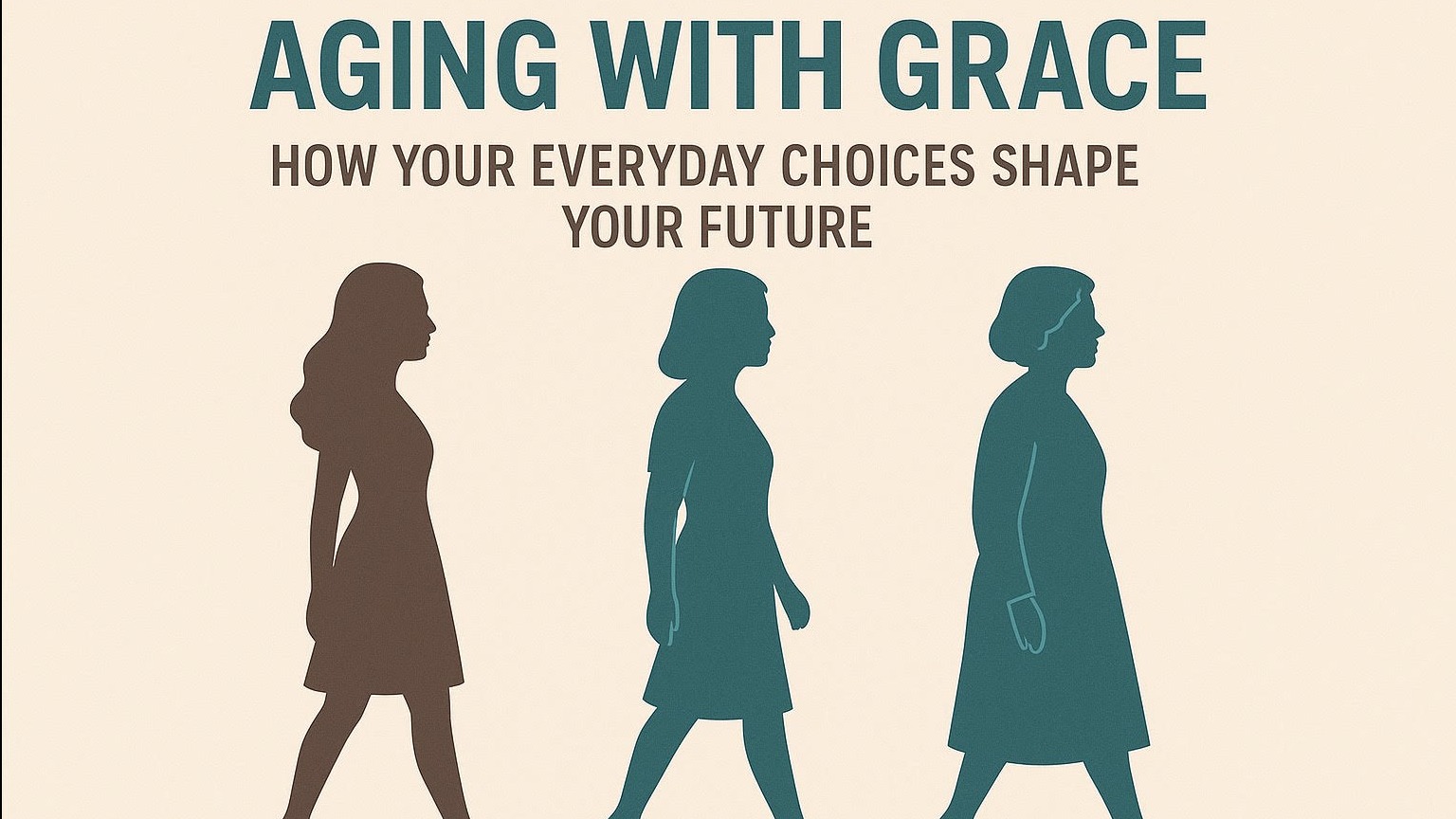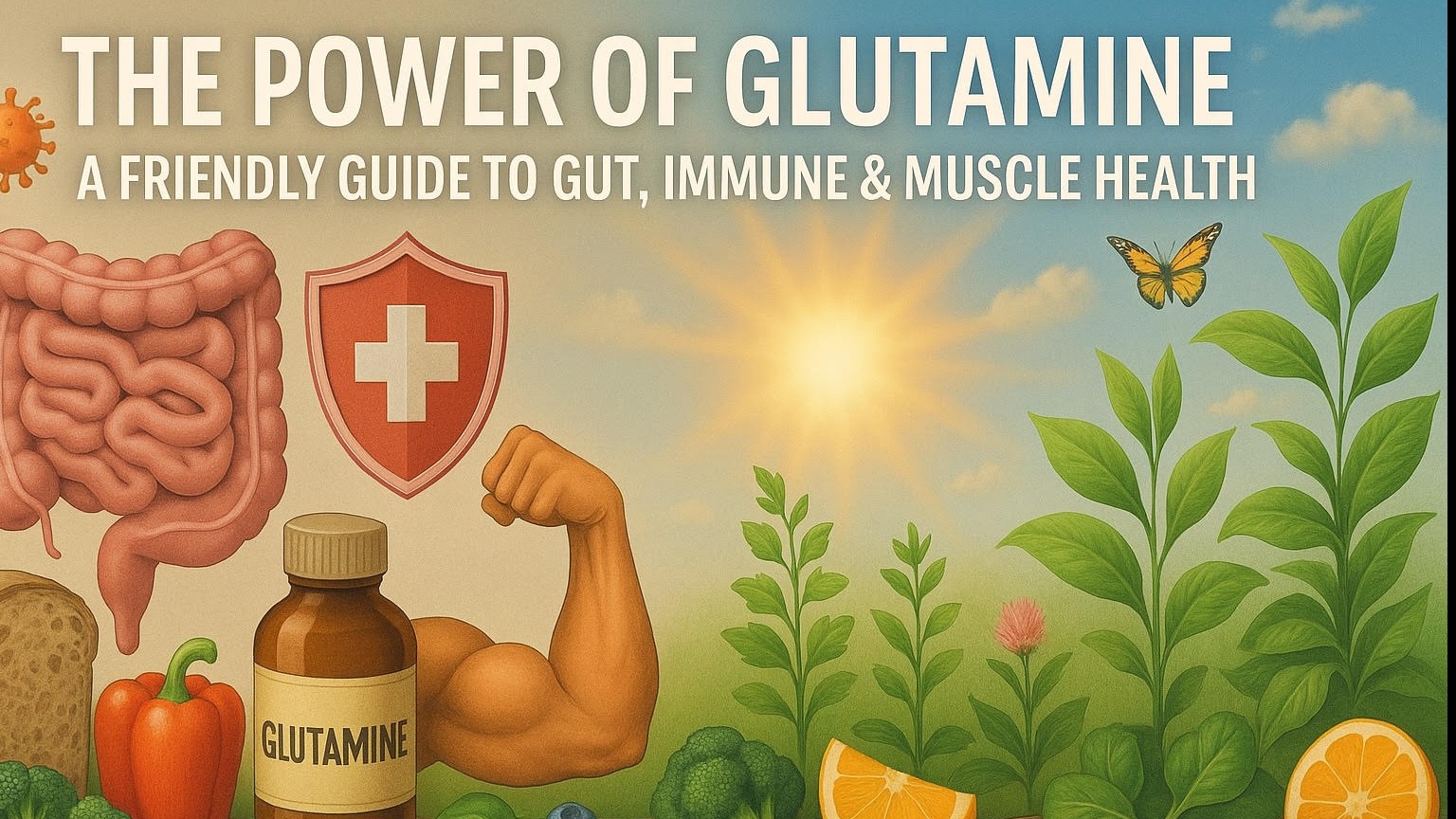
Friend to friend, here’s the truth: aging isn’t just something that happens to us—it’s something we can influence every single day.
It’s Not All About Your Genes
We’ve all heard the big conversations about genetics, hormones, gut health, and nutrition. And yes, they matter. But here’s the part that doesn’t always make headlines: the way you live your everyday life—the things you do without even thinking—can have just as much impact on how you age.
I like to think of it this way: lifestyle is the conductor of your body’s orchestra. It keeps everything in rhythm—your mitochondria (your little energy factories), your hormones, your immune system—and it determines whether the music plays in harmony… or not.
So, what are the biggest lifestyle factors that quietly shape our biological clock? Let’s walk through them together.
1. Move Your Body: The Right Kind of Stress
When I say “exercise,” some people immediately think of sweaty gym sessions or punishing routines. That’s not what I’m talking about here. I’m talking about movement that challenges your body just enough—what scientists call a “hormetic stress.”
Think of it like this: a little bit of stress in the right dose actually teaches your cells to become stronger. Exercise—both aerobic (like brisk walking, swimming, cycling) and anaerobic (like strength training)—creates a short burst of oxidative stress that wakes up your body’s own antioxidant defense system. Over time, this lowers the chronic oxidative stress that drives aging and keeps your mitochondria healthy (PubMed).
And it’s not just about energy. Regular movement is linked to longer telomeres—the protective caps on your DNA that naturally shorten with age (PubMed).
Friendly tip:
Aim for 150 minutes a week of movement you enjoy.
Add in two or three strength-training sessions to keep your muscles and bones strong (especially important for women over 40).
Sprinkle in a little “get-breathless” cardio once or twice a week for a mitochondrial boost.
2. Sleep: Your Nightly Reset Button
Sleep is your body’s chance to repair, restore, and reset. It’s not a luxury—it’s essential maintenance.
At night, your brain literally cleans itself. The glymphatic system (think of it as your brain’s housekeeping crew) works harder while you sleep, clearing out waste products like beta-amyloid proteins that can build up over time (PubMed).
Poor sleep—whether it’s from stress, shift work, or sleep apnea—has been linked to shorter telomeres and faster biological aging (PubMed).
Friendly tip:
Keep a consistent bedtime and wake-up time (yes, even on weekends).
Get morning sunlight to anchor your circadian rhythm.
Keep your bedroom cool, dark, and quiet.
Avoid intense workouts, Vitamin B, or caffeine late in the day if you’re sensitive to them.
I tell my clients: protect your sleep like you’d protect your phone battery—don’t let it drain to zero.
3. Stress: The Sneaky Agitator
We all know stress ages us—but it’s not just a feeling. Chronic stress changes your biology.
When you’re stressed all the time, your body pumps out cortisol and adrenaline in ways that disrupt your hormones, damage your cells, and keep inflammation simmering. This ongoing “wear and tear” is called allostatic load, and it’s strongly linked to faster aging and higher disease risk (PubMed).
There’s also a fascinating link between chronic stress and telomere shortening. High perceived stress can make these DNA caps erode faster, essentially speeding up your cellular clock (PubMed).
Friendly tip:
Practice mini stress resets during the day. Two minutes of slow breathing, a quick walk outside, or even a “physiological sigh” (two short inhales, one long exhale) can bring cortisol back into balance.
Consider mindfulness or compassion meditation—these practices have been shown to lower inflammation and help you respond to stress with more grace (PubMed).
Remember: stress isn’t always the enemy—it’s the unrelenting stress without recovery that causes harm.
4. Spirituality & Community: Your Hidden Longevity Superpower
This one often gets overlooked, but it’s huge. Human connection is as vital as diet or exercise when it comes to longevity.
Research shows that strong social bonds can reduce your risk of dying from any cause by as much as 50%—that’s on par with quitting smoking (PubMed). And it’s not just about the number of people you know—it’s about the quality of those relationships.
Spirituality, purpose, and belonging light up areas of the brain linked to joy and resilience. Acts of love and compassion actually change our brain activity on MRI scans (PubMed).
Friendly tip:
Make connection a habit, not an afterthought. Schedule weekly coffee dates, join a book club, or volunteer.
If you’re spiritual, lean into it. If not, create your own rituals that bring meaning and connection.
Practice gratitude—it shifts your perspective and improves emotional well-being.
A Simple Starting Plan
If you’re wondering, Where do I start?—here’s a gentle, doable approach:
Week 1–2:
Move your body 20–30 minutes most days.
Protect your bedtime and morning routine.
Add two “pause moments” for stress relief.
Schedule one connection activity this week.
Week 3–4:
Add a little intensity to one workout.
Refine your wind-down routine at night.
Try a short compassion meditation twice a week.
Deepen a relationship—call, write, or meet in person.
The Heart of It All
Here’s the truth: aging isn’t a countdown—it’s a becoming. Every walk you take, every night you protect your sleep, every breath you use to calm your nervous system, and every moment you connect with someone you care about—these are the choices that keep you vibrant and resilient for decades to come.
You have more influence over your biological age than you’ve been told. And the best part? It’s not about perfection—it’s about showing up for yourself, little by little, every day.
 Add Row
Add Row  Add
Add 










Write A Comment